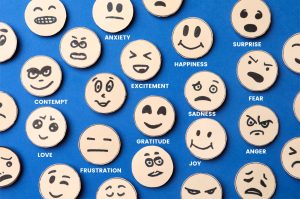Very often I make sure that the title “managing everyday conflict” is emphasised to encourage the reader, the listener or the client to understand how we all share the challenge to manage conflict almost every day of our lives.
Some of the world experts on managing conflict can be found at the Harvard University Law School, Project on Negotiation (PON).
Their books and teachings are based on their worldwide study and research on the management of conflict and on negotiating. The PON team are remarkably skilled at keeping the narrative and the concepts simple.
For example, the PON researchers highlight the need to understand that the fundamental core dynamic driving all conflict is “human emotion.”
They go on to explain that in everyday conflict emotions are the first thing to hit each one of us and yet, the last thing to be dealt with.
This was an unexpected finding as a result of their worldwide research on what makes conflict tick. As a result, their approach to managing conflict is rooted firmly in the skill of self-management and in particular managing my own emotions.
They point out however, that most people are only dimly aware of their emotions especially when they are highly charged in the midst of every day conflict.
Some research suggests that most men struggle to assemble even the vocabulary of emotions never mind understanding how they affect us.
To illustrate the depth of this challenges the PON team ask the innocent question; do you know how to take your own emotional temperature? In the same way that you would take your body temperature with a thermometer.
When I put this question to coaching clients or to teams they are understandably perplexed. This is not the sort of question that is explored in everyday conversation and it touches squarely on the subject of emotions which most people find awkward to even acknowledge never mind talk about.
At this point most of my clients and teams shy away from the prospect of having to:
- Acknowledge that learning the skills of conflict management will require the navigation of emotions in potentially quite uncomfortable ways
- Get comfortable with one simple truth, that if I don’t manage my emotions, my emotions will most certainly manage me and potentially, in very destructive ways
- Admit that they have very powerful emotions moving around in the midst of conflict
- Face up to the truth that they have been regularly handling conflict In non-enlightened ways for a very long time
- Get comfortable with emotions and manage them regularly in the process of becoming more skilled and managing every day conflict
- Experience the powerful emotions that surface when challenging and confronting others in the midst of every day conflict management
The researchers at the PON understand how difficult this learning journey can be and how obviously it becomes clear to the learner that there are no easy answers and no shortcuts.
In fact, the learning journey on the road to everyday managing conflict brings with it the following challenges:
- To discover healthy breathing patterns and avoid unhealthy shallow breathing.
- To learn how to use deep breathing as soon as conflict arises.
- To learn and understand that, “our emotional responses are entirely driven by hormones such as adrenalin (epinephrine), testosterone, and cortisol”.
>> positivepsychology.com/understanding-emotions
As many of my clients have discovered, this can become a significant learning journey but also a very exciting one.
The ultimate prize is the comfort and security that comes along with the confident skill of meeting conflict head-on and in an enlightened way with full knowledge of my emotional dynamics.
Let’s explore this truly fundamental challenge in all our lives and let’s see how many others we can help to achieve a happy and balanced life.
Give me a call on 07850 143 209, write to me at email@dannymcguigan.com or connect with me on Linkedin.









